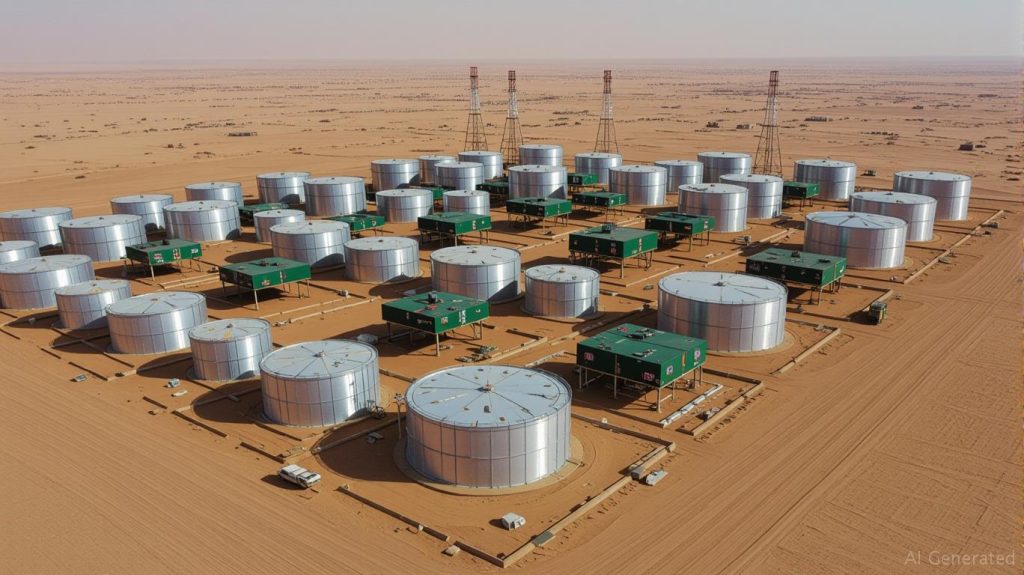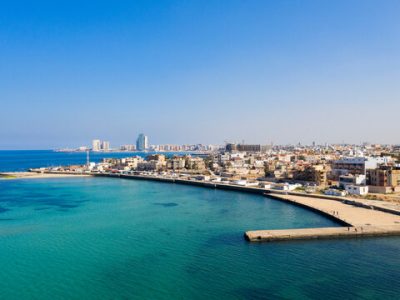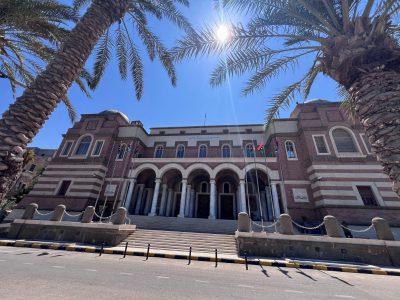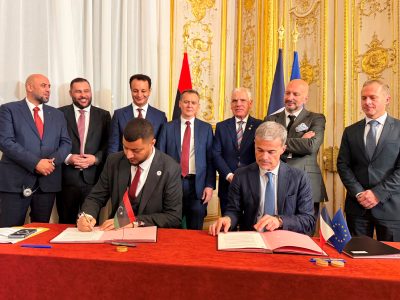Crude Crossroads: Libya Must Be A Player, Not a Pawn, in the Global Energy Game
Long overlooked except in times of upheaval, the vast oil fields and strategic ports along North Africa’s central coast, Libya in particular, are once again drawing the world’s eye. With nearly 50 billion barrels in proven reserves, this land possesses the largest oil bounty on the continent, and its coastline opens directly onto the Mediterranean’s busiest shipping lanes. A nation long battered by conflict now finds itself at the centre of an unfolding energy realignment, as Europe searches urgently for alternatives to Russian supplies and Beijing steadily extends its influence across the region. In this renewed contest for access and advantage, there lies both promise and peril. The question is whether the country can steer these currents to secure a future that serves its own people, rather than becoming a stage for rival ambitions.
Its geography alone confers enormous leverage. The shoreline lies just across the water from Sicily, tied by undersea pipelines that have delivered natural gas to European markets for years. The Green Stream connection, capable of transporting some eight billion cubic metres annually, underscores why infrastructure built decades ago now carries fresh geopolitical weight. In 2023, the state oil company (Libya’s National Oil Company, or NOC) signed an eight billion dollar deal with Italy’s Eni to develop offshore gas fields, marking the most substantial foreign energy commitment in two decades. Eni’s chief executive Claudio Descalzi called it “an important milestone that will help to unlock Libyan exploration potential by resuming EPSA operations that have remained suspended since 2014.” She elaborated by explaining that this contributed towards creating an attractive investment environment in the country, aimed at restoring production levels and reserve base by optimizing the use of existing infrastructure. Such projects strengthen ties to European grids at a moment when Brussels is determined to redraw its energy dependencies. Yet for these ventures to bring more than exports, leaders will need to insist on local dividends, from employment to the revitalization of domestic networks.
While Western partnerships make headlines, another power is advancing its stake with quieter persistence. China has become an increasingly significant customer for local crude, importing more than two billions dollars’ worth in 2023. Its state oil giants, once active in this market before the revolution, are exploring ways back, encouraged by diplomatic overtures that place these resources within the broader Belt and Road vision. President Xi Jinping captured this ambition when he told visiting officials “China looks forward to more friendly cooperation with Libya and stands ready to work with Libya for the steady and sustained growth of bilateral ties.” Chinese firms are negotiating infrastructure contracts and preparing to reopen embassies shuttered by past instability, signaling a long-term economic strategy that blends energy security with broader commercial influence. For a country eager to rebuild after years of division, these overtures offer much-needed capital and expertise. The task ahead will be ensuring that no external player becomes indispensable enough to tilt political or economic autonomy.
What truly distinguishes this corner of North Africa is not only the scale of its reserves but their exceptional quality. The oil drawn from these fields is generally light and sweet, with low sulfur content and high API gravity, prized by refiners aiming to produce cleaner fuels at higher margins. With tightening environmental standards across Europe and Asia, such characteristics place this output in steady demand, offering opportunities to command premium prices so long as supply remains reliable. Ensuring that these natural advantages translate into sustained national benefit, however, demands more than geology. I depends on consistent governance, fair contracts, and investment that repairs and modernizes the region’s own long-neglected infrastructure.
At this juncture, the choices made will resonate far beyond the oil terminals. European firms are deepening commitments that tie local production even closer to EU energy security. Beijing is laying the groundwork for a new corridor of commerce that stretches across North Africa. Navigating these overlapping interests requires a deliberate strategy that secures technology transfers, insists on local hiring, and channels revenues into services that can reach beyond the hydrocarbons sector. It also calls for transparency in dealings and balanced diplomacy to avoid undue reliance on any single partner. Managed with care, these relationships can underwrite schools, hospitals, and industries that diversify the economy’s base, reducing the vulnerabilities exposed by years of boom-and-bust cycles tied to a single commodity.
A nation endowed with such reserves and geographic fortune need not accept the role of passive supplier. With prudence and a firm insistence on equitable terms, it can position itself as an active participant shaping regional energy flows, rather than a pawn shifted by external powers. This moment at the crossroads offers both a chance to regain lost output, and an opportunity to transform the country into a stable anchor in the Mediterranean’s energy map, with prosperity felt far beyond the oilfields. Whether that promise is fulfilled will rest on the ability of leaders to look beyond short-term expediencies and secure partnerships that build lasting foundations. The opportunity is unmistakable. Seizing it with vision and resolve is what will determine whether this resurgence becomes a platform for national renewal or simply another chapter of outside interests taking precedence over local hopes.




